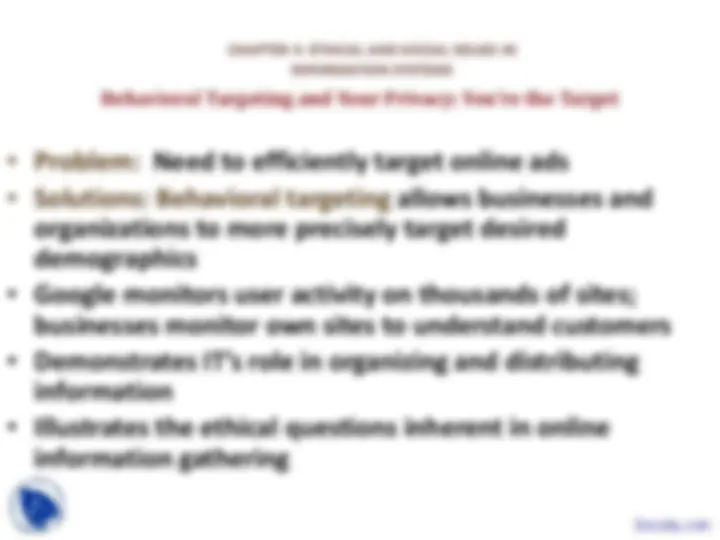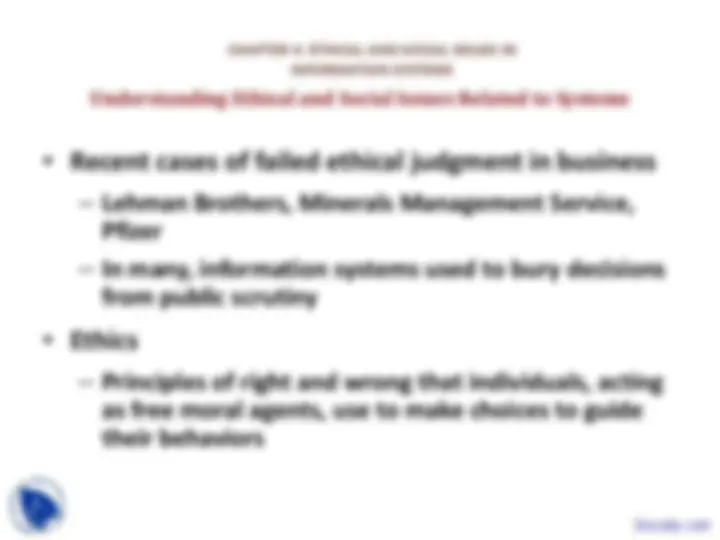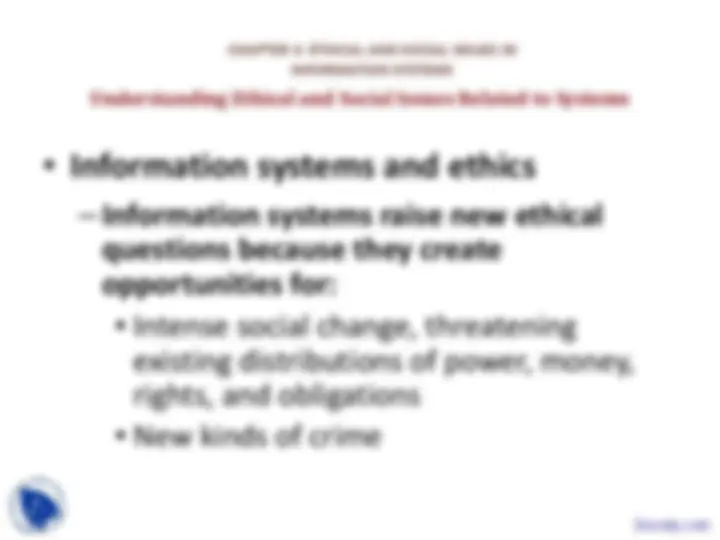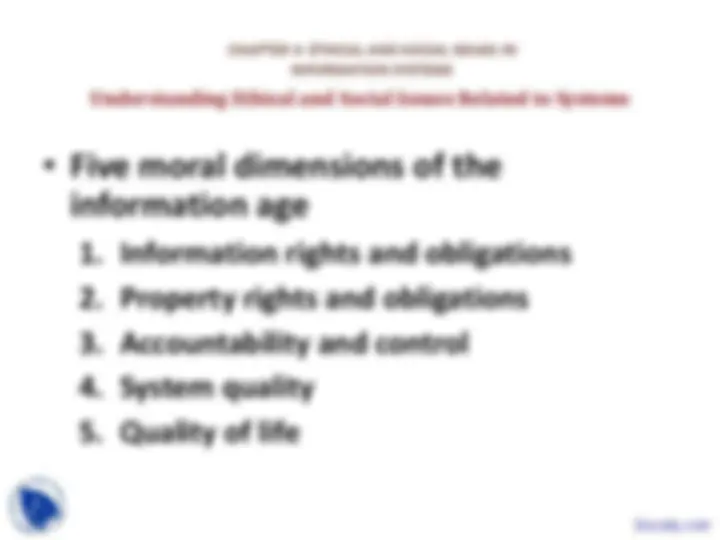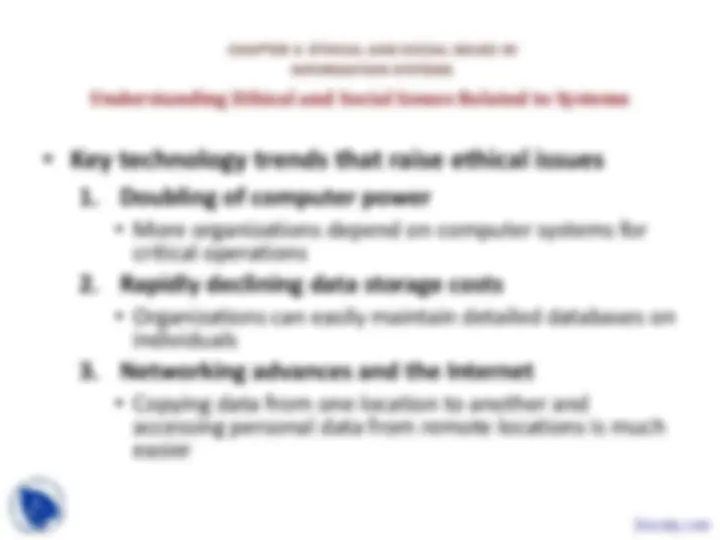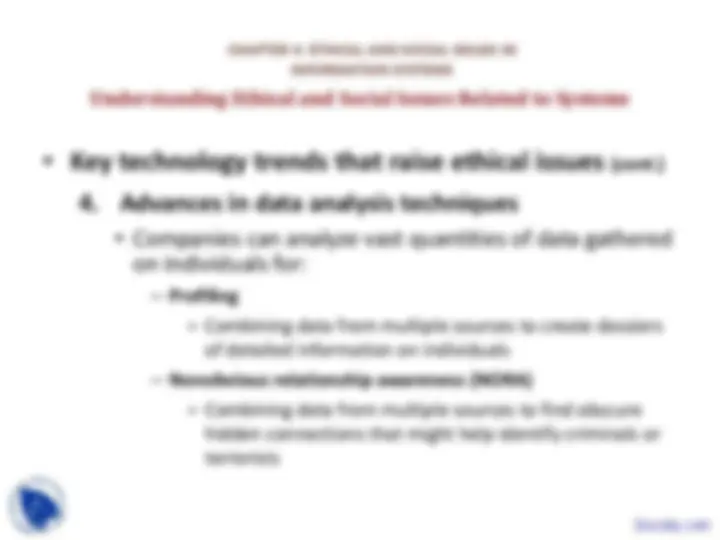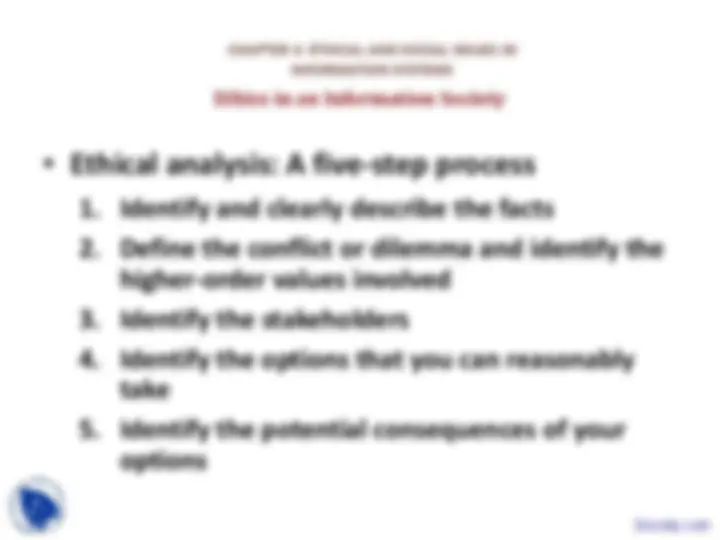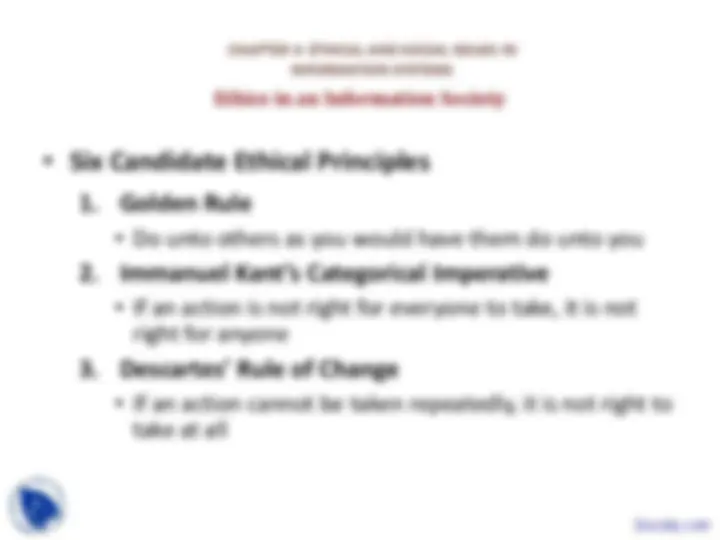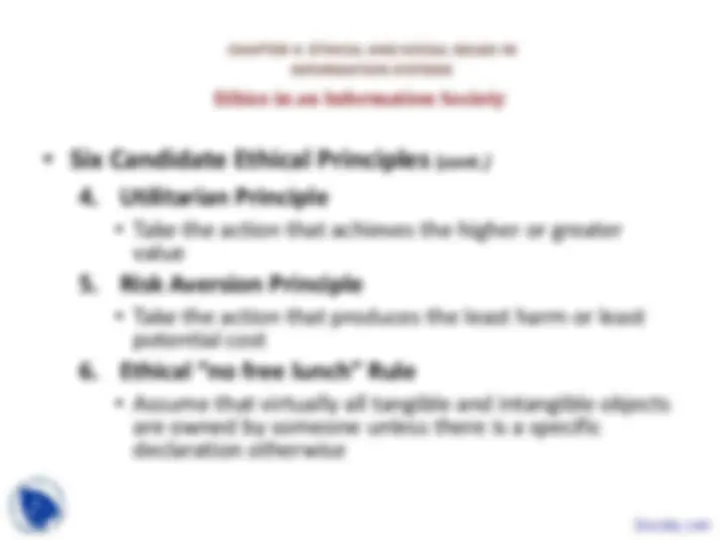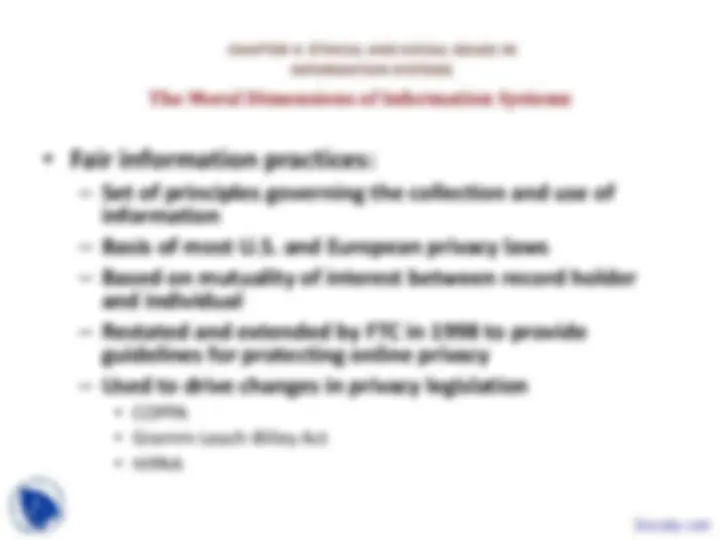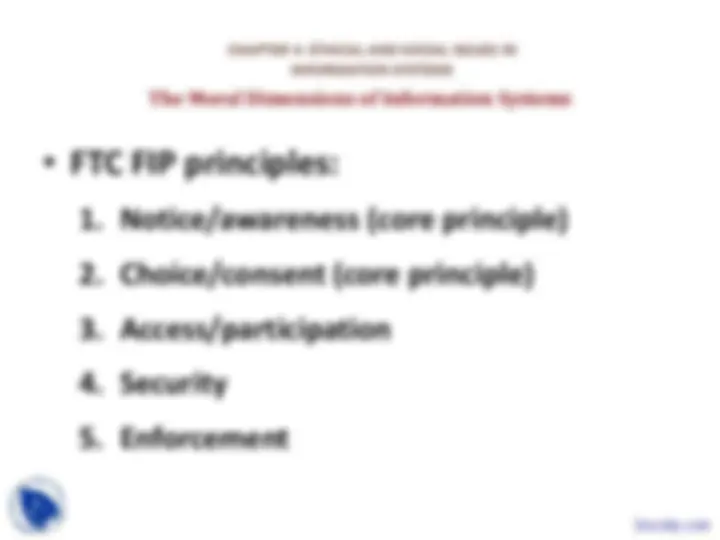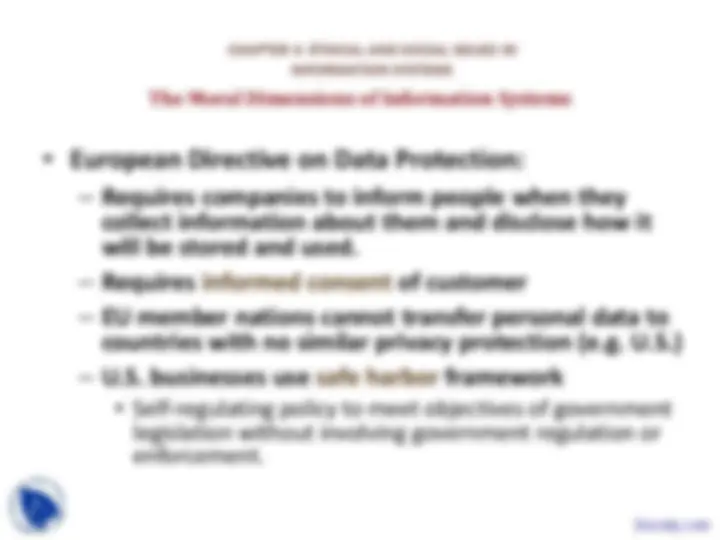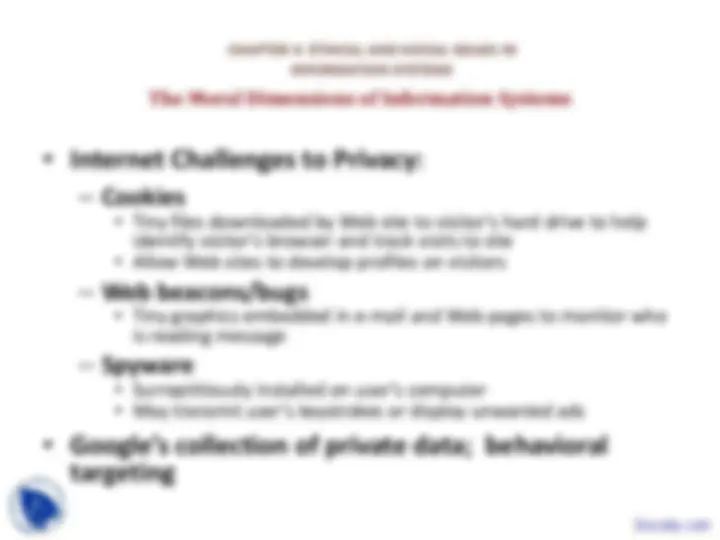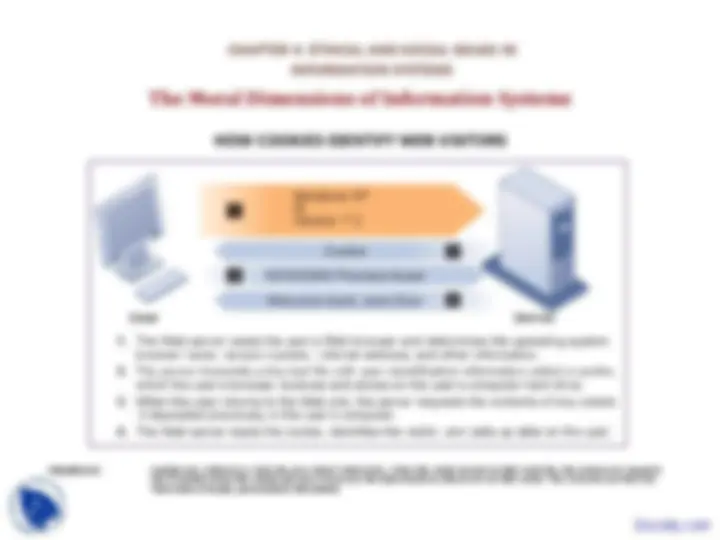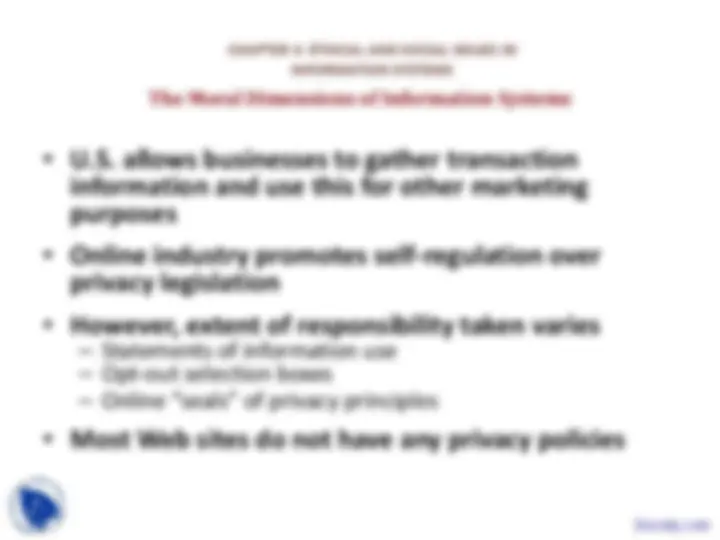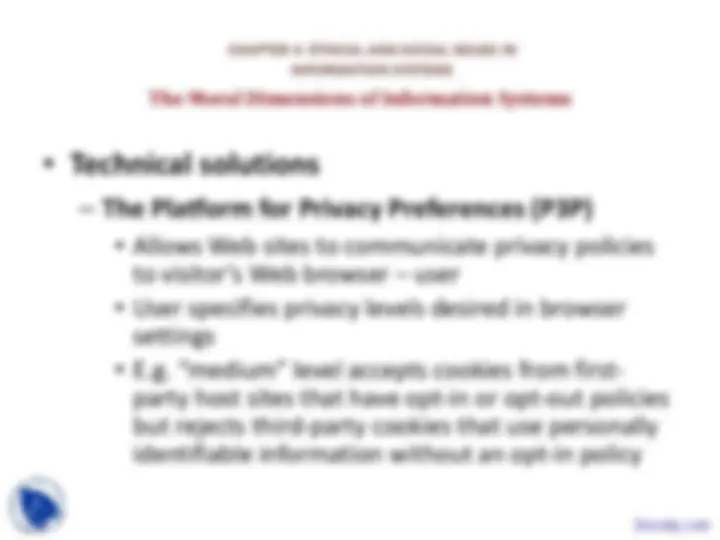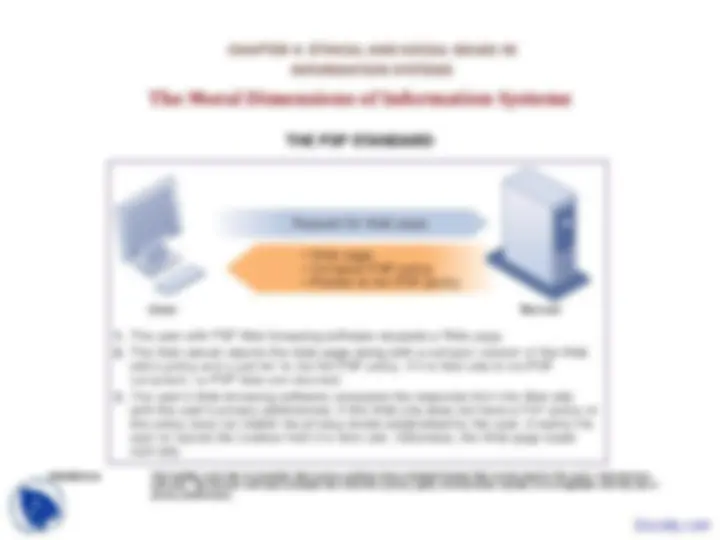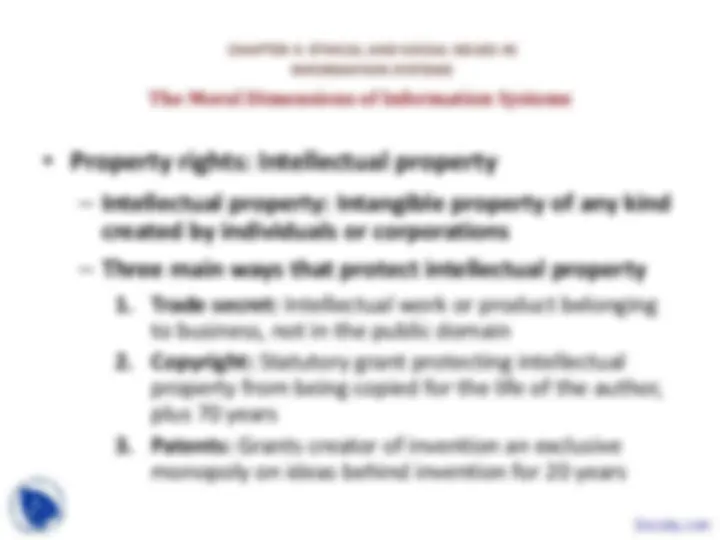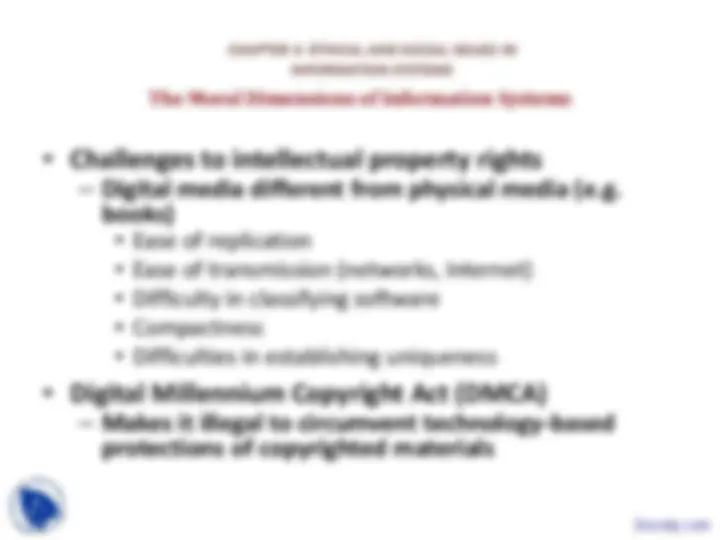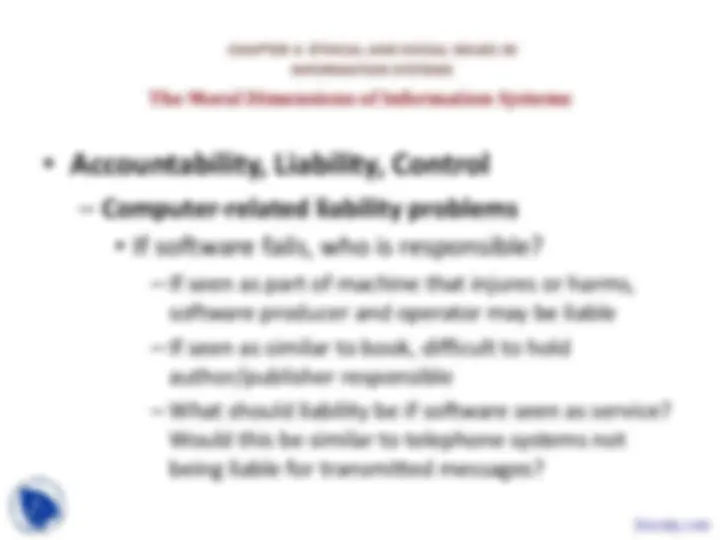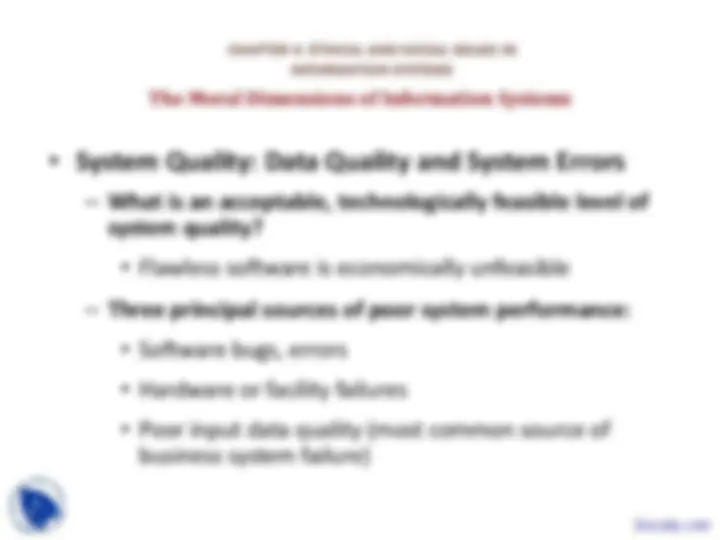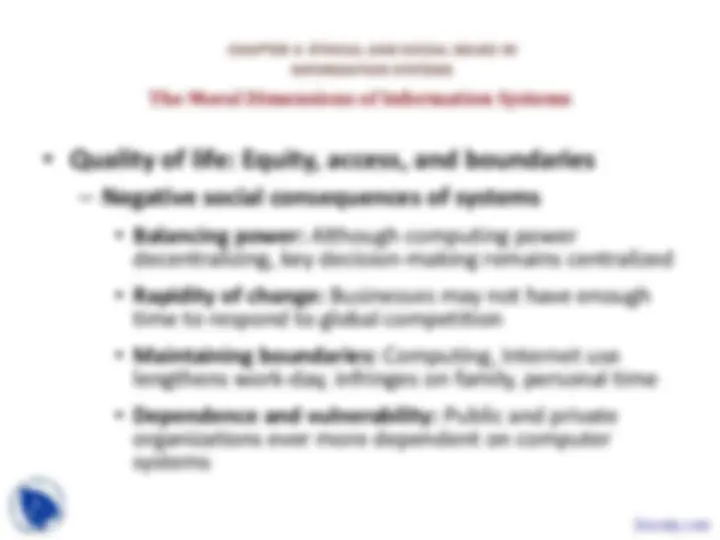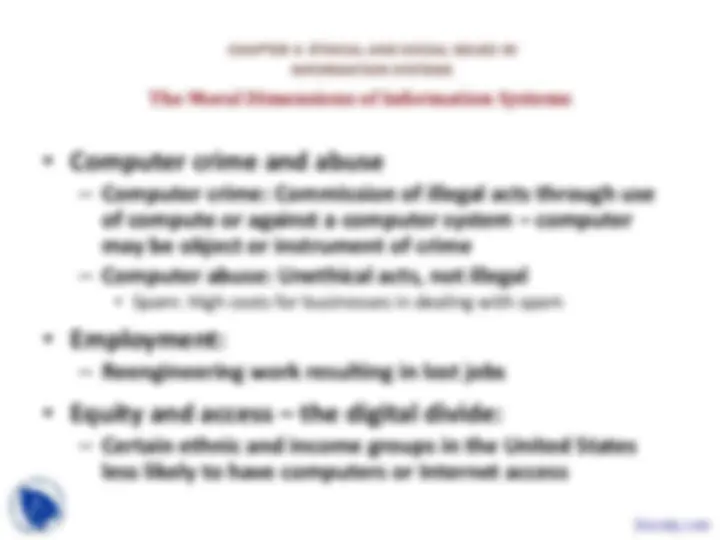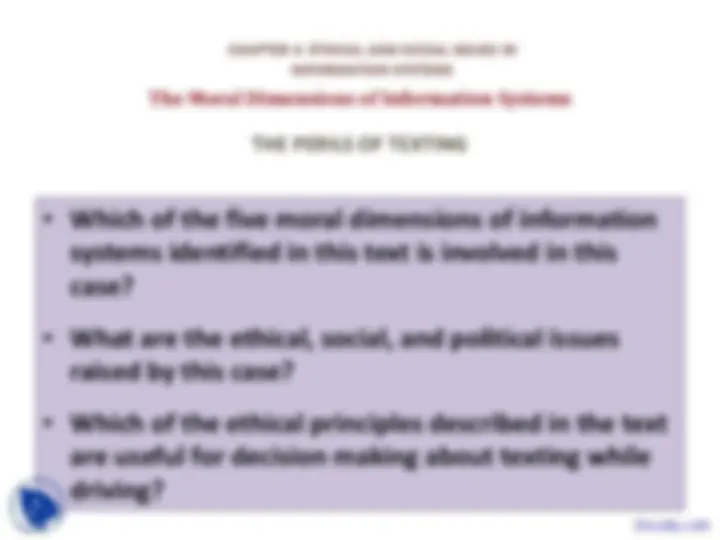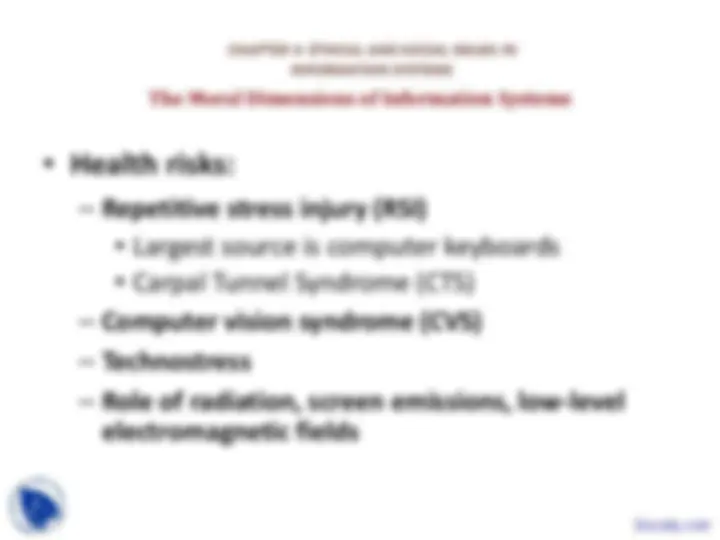Download Ethiocal and Social Issues - Social Legislation - Lecture Slides and more Slides Introduction to Sociology in PDF only on Docsity!
ETHICAL AND SOCIAL ISSUES IN
INFORMATION SYSTEMS
Chapter 4
Docsity.com
- What ethical, social, and political issues are raised
by information systems?
- What specific principles for conduct can be used to
guide ethical decisions?
- Why do contemporary information systems
technology and the Internet pose challenges to the
protection of individual privacy and intellectual
property?
- How have information systems affected everyday
life?
Learning Objectives
INFORMATION SYSTEMS
- Recent cases of failed ethical judgment in business
- Lehman Brothers, Minerals Management Service, Pfizer
- In many, information systems used to bury decisions from public scrutiny
- Ethics
- Principles of right and wrong that individuals, acting as free moral agents, use to make choices to guide their behaviors
Understanding Ethical and Social Issues Related to Systems
INFORMATION SYSTEMS
- Information systems and ethics
- Information systems raise new ethical questions because they create opportunities for: - Intense social change, threatening existing distributions of power, money, rights, and obligations - New kinds of crime
Understanding Ethical and Social Issues Related to Systems
INFORMATION SYSTEMS
Understanding Ethical and Social Issues Related to Systems
THE RELATIONSHIP BETWEEN ETHICAL, SOCIAL, AND POLITICAL ISSUES IN AN INFORMATION SOCIETY
The introduction of new informationtechnology has a ripple effect, raising new ethical, social, and politicalissues that must be dealt with on the individual, social, and political levels.These issues have five moral dimensions: information rights andobligations, property rights and obligations, system quality, quality oflife, and accountability and control.
FIGURE 4-
INFORMATION SYSTEMS
- Five moral dimensions of the
information age
- Information rights and obligations
- Property rights and obligations
- Accountability and control
- System quality
- Quality of life
Understanding Ethical and Social Issues Related to Systems
INFORMATION SYSTEMS
- Key technology trends that raise ethical issues ( cont. )
- Advances in data analysis techniques
- Companies can analyze vast quantities of data gathered on individuals for: - Profiling » Combining data from multiple sources to create dossiers of detailed information on individuals - Nonobvious relationship awareness (NORA) » Combining data from multiple sources to find obscure hidden connections that might help identify criminals or terrorists
Understanding Ethical and Social Issues Related to Systems
INFORMATION SYSTEMS
Understanding Ethical and Social Issues Related to Systems
NONOBVIOUS RELATIONSHIP AWARENESS (NORA)
NORA technology can take information about people from disparate sources and find obscure, nonobvious relationships. It might discover, for example, that an applicant for a job at a casino shares a telephone number with a known criminal and issue an alert to the hiring manager.
FIGURE 4-
INFORMATION SYSTEMS
- Ethical analysis: A five-step process
1. Identify and clearly describe the facts
2. Define the conflict or dilemma and identify the
higher-order values involved
3. Identify the stakeholders
4. Identify the options that you can reasonably
take
5. Identify the potential consequences of your
options
Ethics in an Information Society
INFORMATION SYSTEMS
- Six Candidate Ethical Principles
- Golden Rule
- Do unto others as you would have them do unto you
- Immanuel Kant’s Categorical Imperative
- If an action is not right for everyone to take, it is not right for anyone
- Descartes’ Rule of Change
- If an action cannot be taken repeatedly, it is not right to take at all
Ethics in an Information Society
INFORMATION SYSTEMS
- Professional codes of conduct
- Promulgated by associations of professionals
- Promises by professions to regulate themselves in the general interest of society
- Real-world ethical dilemmas
- One set of interests pitted against another
- E.g. Right of company to maximize productivity of workers vs. workers right to use Internet for short personal tasks
Ethics in an Information Society
INFORMATION SYSTEMS
- Privacy:
- Claim of individuals to be left alone, free from surveillance or interference from other individuals, organizations, or state. Claim to be able to control information about yourself
- In U.S., privacy protected by:
- First Amendment (freedom of speech)
- Fourth Amendment (unreasonable search and seizure)
- Additional federal statues (e.g. Privacy Act of 1974)
The Moral Dimensions of Information Systems
INFORMATION SYSTEMS
- FTC FIP principles:
- Notice/awareness (core principle)
- Choice/consent (core principle)
- Access/participation
- Security
- Enforcement
The Moral Dimensions of Information Systems
INFORMATION SYSTEMS
- European Directive on Data Protection:
- Requires companies to inform people when they collect information about them and disclose how it will be stored and used.
- Requires informed consent of customer
- EU member nations cannot transfer personal data to countries with no similar privacy protection (e.g. U.S.)
- U.S. businesses use safe harbor framework
- Self-regulating policy to meet objectives of government legislation without involving government regulation or enforcement.
The Moral Dimensions of Information Systems
INFORMATION SYSTEMS

